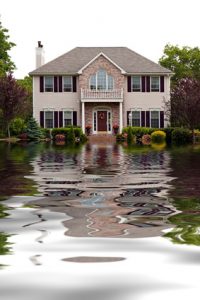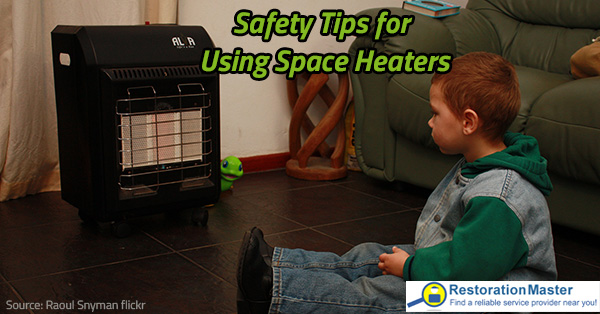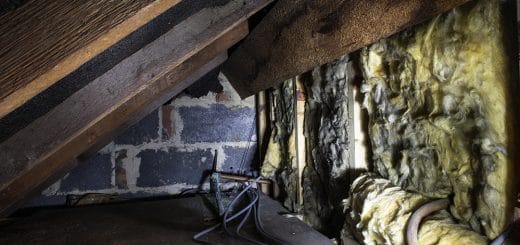How to Prepare Your Home for a Flood
Floods are the most common natural disasters, but not all of them are caused by Mother Nature. They can occur from any of the following sources: heavy rains, sewageSewage is wastewater containing biological and chemical cont... More backups, leaking appliances and pipes, frozen and burst pipes, hurricanes, thunderstorms, or dam failures.
While manmade floods are unexpected, property owners are often provided with some time to prepare for natural floodingFlooding is the overflow or accumulation of water in areas t... More, hurricanes, and storms. These types of floods are known to cause the most damage to property structures and contents, however, live updates are continuously improving to provide timely warnings before these disasters hit.
Preparing for a Flood
While there is a lot of information on preparing your family for a flood, there is little information on protecting your home. While your family is your first priority, some situations allow enough time to protect your property.
Check out the following tips on how to prepare your home for a flood. They can mean the difference between little and severe damage that can save thousands of dollars in restorationRestoration is the process of returning a property to its pr... More costs.
1. Risk Assessment
The first action to take in the event of a flood is to evaluate your risk. If your home is in a flood zone or near a body of water, your risk for a flood is much higher.
Also be sure to pay attention to the weather channel to receive frequent updates on the status of the approaching flood, its severity, and whether or not evacuation is advised. Continue with your flood preparationPreparation is the steps taken to ready a property, equipmen... More efforts if you believe a flood on your property is imminent.
2. Purchase Insurance
While water damage is often included under most homeowner’s insuranceHomeowner’s insurance is a policy that provides financial ... More policies, flood damage is not. Especially if you are in a flood zone, be sure to call your insurance provider and purchase additional coverage.
Be aware, however, that flood insurance cannot be purchased last minute as it will not take effect until 30 days after the policy is purchased. If you are worried about the effects of flood damage but don’t have insurance, proceed with the tips provided below. Consider purchasing flood insurance for future disasters.
3. Supplies
Prepare an emergency supply kit stocked with important items in case you need to evacuate or even stay in your property. This kit should include at least three days of food and water, a flashlight, first aid kit, medication, necessary personal documents, keys, cellphone with charger, and anything else you may need to get through the ordeal.
4. Evacuation Plan
It is important to have an evacuation plan ready and that all members of your household are aware of the plan in case the situation forces you to evacuate. It also helps to establish a communication plan to stay in contact during an evacuation.
Be sure to practice it frequently to ensure everyone knows it well so they know exactly what to do in the event of an emergency.
5. Higher Ground
In cases of flash floodingFlooding is the overflow or accumulation of water in areas t... More, you should put valuable items such as photos or personal documents in a high place or on your upper floors.
Remember that you should only do this if you have time to safely evacuate. If the flood is approaching soon, skip this step and get to higher ground right away.

Do not face a flood head on without adequate preparationPreparation is the steps taken to ready a property, equipmen... More.
6. Stay Informed
If floodingFlooding is the overflow or accumulation of water in areas t... More is expected in your area, stay tuned to the news to receive updates on flood watches and warnings as well as the weather. Remember a flood watch means that floodingFlooding is the overflow or accumulation of water in areas t... More is possible, and a flood warning means floodingFlooding is the overflow or accumulation of water in areas t... More is already happening or will happen soon.
7. Turn off Utilities
In instances of severe floodingFlooding is the overflow or accumulation of water in areas t... More, turn off your gas, electric, and water and disconnect any electrical appliances. It is important that these actions are taken before evacuating.
If you have a sump pumpA sump pump is a pump installed in a basement or crawlspace ... More in your basement, ensure that it is on and in proper working condition. It’s recommended to invest in sump pumps that are battery-powered (preferably those running on a 12-volt battery) instead of those connected to electricity as floods can knock out power for days and even weeks. It will also be safe to keep this running while the power stays off to fully protect your property, or just limit the damage.
If there is time, have a licensed plumber inspect your sump pumpA sump pump is a pump installed in a basement or crawlspace ... More and recommend the best backup investment for your home.
8. Waterproof your Basement
While this won’t prevent flood damage prior to an emerging flood, investing in a waterproof basement can save a lot of stress during natural disasters. Especially for homes that flood often, this investment will pay for itself in the long run.
If you have a fuel tank in your basement, be sure to anchor it as this can cause severe damage if it leaks oil through the supply line or even the tank itself.
Get Help from a RestorationRestoration is the process of returning a property to its pr... More Company
Do not face a flood head on without adequate preparationPreparation is the steps taken to ready a property, equipmen... More or you could jeopardize the safety of your family and your property. You can give yourself the best chances of survival while reducing the risk of damage to your property by following these preparationPreparation is the steps taken to ready a property, equipmen... More tips.
If your home sustains heavy water damage as a result of floodingFlooding is the overflow or accumulation of water in areas t... More, contact a trusted water damage restoration provider immediately. These professionals are licensed, experienced, and trained to react right after floods to prevent the damage from spreading, extracting all flood water from the affected spaces. They will also install dryingDrying is the process of removing moisture from materials, s... More equipment to remove excess moisture from the building materials and air spaces.
Any moldMold is a type of fungus that grows in damp or humid conditi... More growth will also be addressed through professional mold remediation services. Using advanced products and equipment, restorationRestoration is the process of returning a property to its pr... More technicians will remove the moldMold is a type of fungus that grows in damp or humid conditi... More at its source. They will also prevent it from returning in the future by applying anti-microbials.
While there are steps you can take to prevent floods from damaging your home, it’s impossible to ensure that everything will stay dry during a disaster. In these situations, restorationRestoration is the process of returning a property to its pr... More professionals can provide complete peace of mind through water damage restoration as well as moldMold is a type of fungus that grows in damp or humid conditi... More removal in some cases.













